Best Personal Loan Providers to Buy in November 2025
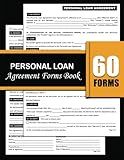
Personal Loan Agreement Forms Book: Standard Legal Contract of Understanding For Credit Repayment - Promissory Note


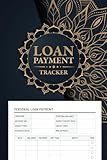
Personal Loan Payment Tracker: Debt Payoff Planner to Manage and Track Your for Financial Success



The Insider’s Guide to Business Credit Using an EIN Only: Get Tradelines, Credit Cards, and Loans for Your Business with No Personal Guarantee


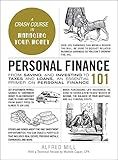
Personal Finance 101: From Saving and Investing to Taxes and Loans, an Essential Primer on Personal Finance (Adams 101 Series)


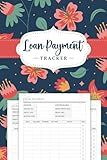
Personal Loan Payment Tracker: Mortgage, Car, and Debt Payoff Planner for Financial Freedom


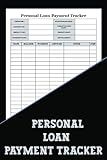
Personal Loan Payment Tracker: Track your personal loan payments with this record. It's perfect for keeping track of your budget and staying on top of your personal loan payments.


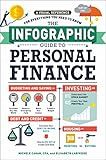
The Infographic Guide to Personal Finance: A Visual Reference for Everything You Need to Know (Infographic Guide Series)


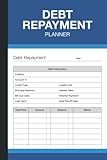
Debt Repayment Planner: Log Book Tracker For Credit and Loan Payoff - Personal Budgeting - (100 Pages) - 6x9 Inches


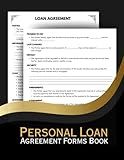
Personal Loan Agreement Forms Book: Loan Contract Templates for Personal and Business Use – Protect Lenders and Borrowers with Easy, Fillable Legal Forms | 120P


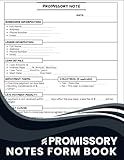
Promissory Note Form Book : Loan & Debt Agreement Templates for Personal & Business Use | 60 Fillable Forms


If you are looking to apply for a personal loan with low interest rates, there are several options available to you. Here are some places where you can consider applying:
- Banks: Traditional banks often offer personal loans with competitive interest rates. You can approach your local bank or check online to compare rates and terms.
- Credit Unions: Credit unions are not-for-profit financial institutions that typically provide loans with lower interest rates compared to banks. Membership criteria may apply, but it is worth exploring this option.
- Online Lenders: Online lenders have gained popularity in recent years and may offer lower interest rates due to lower overhead costs. These lenders often have a streamlined application process and quick approval times.
- Peer-to-Peer Lending Platforms: Peer-to-peer lending platforms connect borrowers directly with individual lenders. These platforms can offer lower interest rates compared to traditional lenders, as they eliminate some costs associated with traditional banking.
- Nonprofit Organizations: Some nonprofit organizations offer personal loans with low interest rates to help individuals with financial needs. These loans may have stricter eligibility criteria, but they can be a good option for those who qualify.
Before applying for a personal loan, it is essential to compare interest rates, loan terms, and any associated fees across multiple lenders. Additionally, consider checking your credit score, as it may affect the interest rate you are offered. Shop around and evaluate different options to find the best personal loan with low interest rates that suits your needs and financial situation.
What is the difference between secured and unsecured personal loans?
Secured and unsecured personal loans are two categories of loans with notable differences:
- Collateral: Secured personal loans require collateral, which is an asset that the borrower provides as a security in case of default. This collateral can be a house, car, jewelry, or any other valuable asset. In contrast, unsecured personal loans do not require collateral, so there is no need to provide an asset.
- Risk for the borrower: Since secured loans are backed by collateral, they are less risky for the lender. If the borrower defaults on the loan, the lender can seize and sell the collateral to recover the outstanding debt. Unsecured loans, on the other hand, are riskier for the lenders, as they have no collateral to hold onto in case of default. However, unsecured loans usually come with higher interest rates due to the increased risk.
- Loan amount and terms: Secured loans generally allow borrowers to access larger loan amounts compared to unsecured loans. The presence of collateral provides a sense of security to lenders, allowing them to lend larger sums of money. Additionally, secured loans often have longer repayment terms, providing borrowers with a more extended period to repay the loan. Unsecured loans, however, typically have lower maximum loan amounts and shorter repayment terms.
- Application process: Obtaining a secured loan requires a more comprehensive application process, as lenders need to verify both the borrower's creditworthiness and the value of the collateral. It may involve property appraisals, legal checks, and other assessments. Unsecured loans generally have a simpler application process, focusing primarily on the borrower's credit history, income, and financial stability.
- Credit requirements: Due to the presence of collateral, secured loans are often accessible to borrowers with lower credit scores or a less favorable credit history. Having collateral mitigates the risk for lenders, allowing them to approve loans for individuals who may not qualify for unsecured loans. Conversely, unsecured loans typically require a good credit score, stable income, and a stronger credit history to be eligible for approval.
In summary, secured personal loans require collateral, offer larger loan amounts and longer repayment terms, have lower interest rates, and are available to borrowers with lower credit scores. Unsecured personal loans do not require collateral, have lower loan amounts and shorter repayment terms, have higher interest rates, and require a stronger credit history for approval.
What is the ideal loan term for a personal loan with low interest?
The ideal loan term for a personal loan with low interest depends on several factors, including your financial situation, loan amount, and repayment capacity. Generally, a shorter loan term tends to have lower interest rates, but the monthly payments may be higher. On the other hand, a longer loan term may have slightly higher interest rates, but the monthly payments will be more affordable.
To determine the ideal loan term, consider your ability to make monthly payments comfortably without straining your budget. Additionally, think about your financial goals and how soon you want to be debt-free. It's important to strike a balance between a manageable monthly payment and a reasonable loan term to avoid paying excessive interest over the long run. Consulting with a financial advisor or a loan officer can provide personalized guidance based on your specific circumstances.
What is the difference between a bank and a credit union for low-interest personal loans?
There are several key differences between a bank and a credit union when it comes to low-interest personal loans:
- Ownership: Banks are typically for-profit financial institutions owned by shareholders, while credit unions are not-for-profit entities owned by their members (customers). This difference in ownership can influence the rates and terms offered for personal loans.
- Membership: Banks are open to the general public, whereas credit unions have membership restrictions based on certain criteria such as employment, location, or membership in a specific organization or community. Credit unions often emphasize a sense of community and cater to specific groups of individuals.
- Interest rates and fees: Credit unions often offer lower interest rates and fewer fees on personal loans compared to banks. As not-for-profit organizations, credit unions generally prioritize serving their members rather than maximizing profits. This can result in more competitive loan terms and lower interest rates.
- Eligibility requirements: Banks typically have more flexible eligibility requirements, allowing a broader range of individuals to qualify for personal loans. Credit unions may have stricter membership criteria, limiting access to individuals who meet specific criteria or are part of a particular community.
- Customer service: Credit unions are often known for providing more personalized customer service, focusing on the needs and financial well-being of their members. As member-owned organizations, credit unions have a strong customer-centric approach and may tailor loan products to better suit individual circumstances.
Ultimately, the choice between a bank and a credit union for low-interest personal loans depends on factors such as eligibility, location, membership requirements, and individual financial needs. It is advisable to research and compare the offerings of different banks and credit unions to find the most suitable loan option.
Where to find personal loan comparison websites?
There are several websites that provide comparisons for personal loans. Some popular ones include:
- Bankrate: www.bankrate.com/personal-loans
- NerdWallet: www.nerdwallet.com/loans/personal-loans
- LendingTree: www.lendingtree.com/personal
- ValuePenguin: www.valuepenguin.com/personal-loans
- Experian: www.experian.com/personal-loans.html
- Credit Karma: www.creditkarma.com/personal-loans
- Financer: www.financer.com/personal-loans
- Credible: www.credible.com/personal-loans Remember to research and compare different websites to find the one that suits your needs and preferences the best.
How to get a personal loan with low interest if you have bad credit?
Getting a personal loan with low interest when you have bad credit can be challenging, but it's not impossible. Here are a few strategies that may help you secure a personal loan with favorable terms:
- Improve your credit score: Before applying for a loan, take steps to rebuild your credit. Pay off outstanding debts, make payments on time, and reduce your credit utilization. A higher credit score can increase your chances of qualifying for a loan with better interest rates.
- Explore credit unions or community banks: These financial institutions often have more flexible lending criteria compared to traditional banks. They may consider factors beyond just your credit score, such as your income, employment history, and assets. Credit unions, in particular, tend to offer lower interest rates to their members.
- Find a cosigner with good credit: A cosigner who has a strong credit history can increase your chances of qualifying for a loan with lower interest rates. Their good credit score reassures the lender that they are responsible for repaying the loan if you default.
- Look for loans secured by collateral: Secured loans, backed by collateral like a car or property, may offer lower interest rates due to the reduced risk for the lender. However, it's vital to understand that if you fail to repay the loan, the lender can seize the collateral.
- Shop around and compare rates: Obtain loan quotes from multiple lenders and carefully compare the interest rates and terms they offer. Online lenders and peer-to-peer lending platforms might be worth exploring, as they often have more lenient eligibility criteria.
- Consider a lender that specializes in bad credit loans: Some lenders focus on lending to individuals with poor credit. While their interest rates may be higher compared to traditional lenders, they might still offer more affordable options compared to predatory lenders like payday loan companies.
- Provide a detailed loan application: Explain your financial situation, emphasizing the steps you have taken to improve your creditworthiness. Offering supporting documentation, such as bank statements, employment history, and proof of income stability, can present a more positive image to lenders.
Remember to borrow only what you need and ensure you can comfortably afford the loan repayments.
